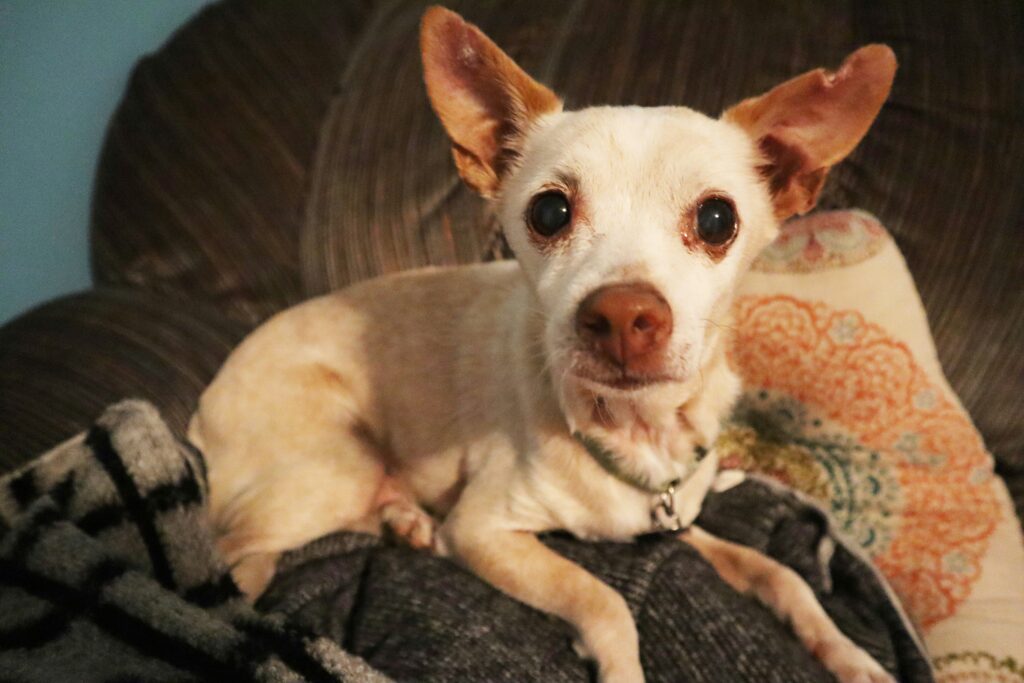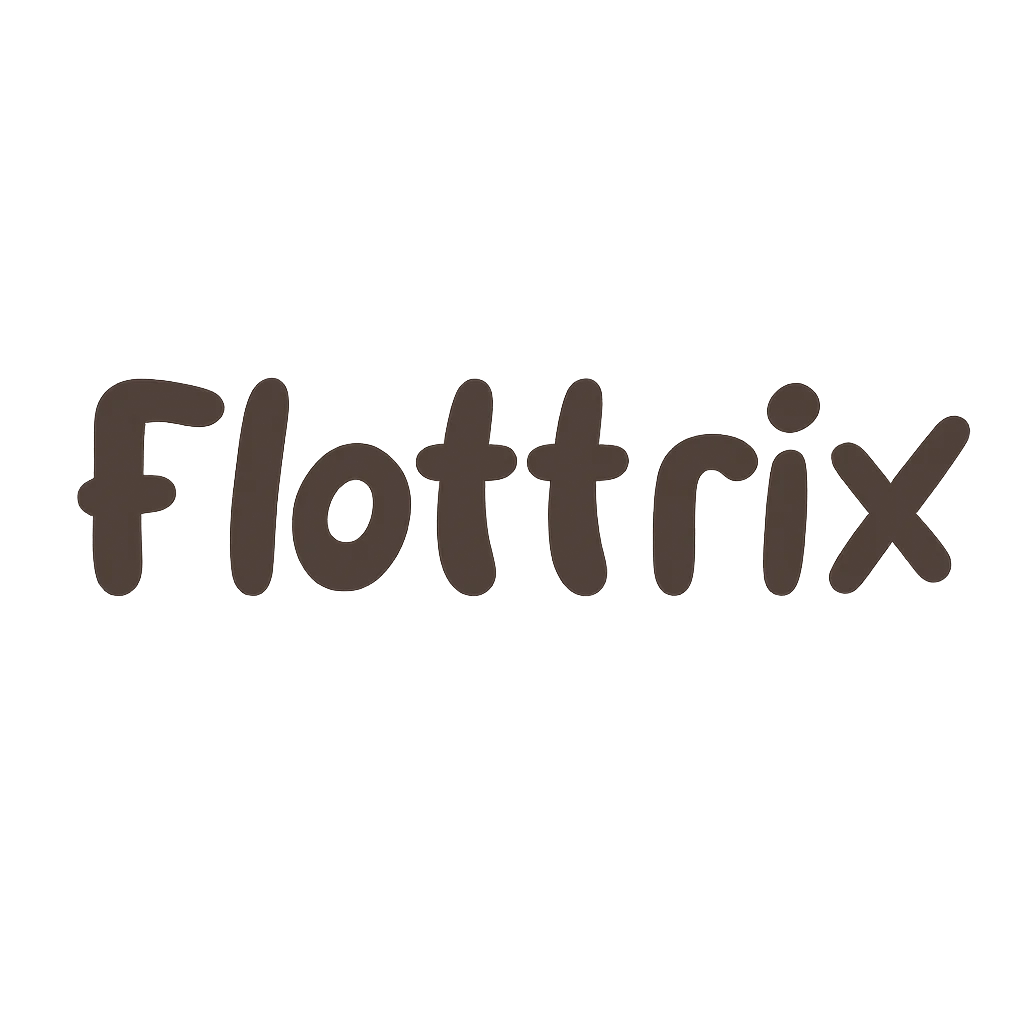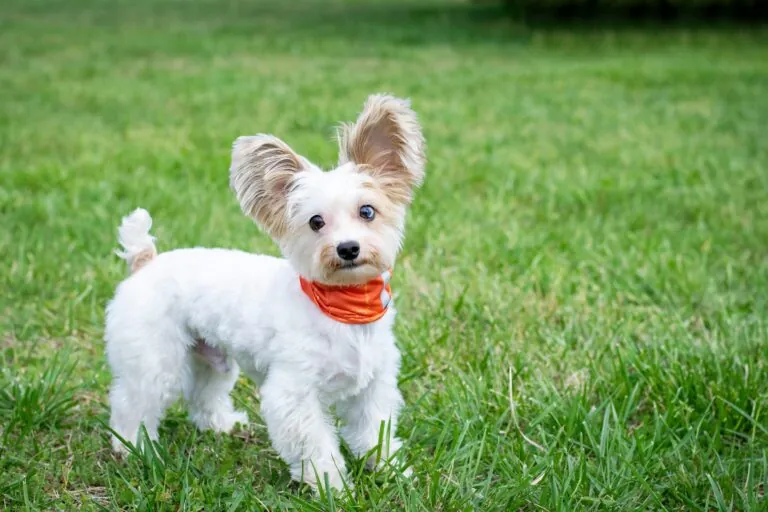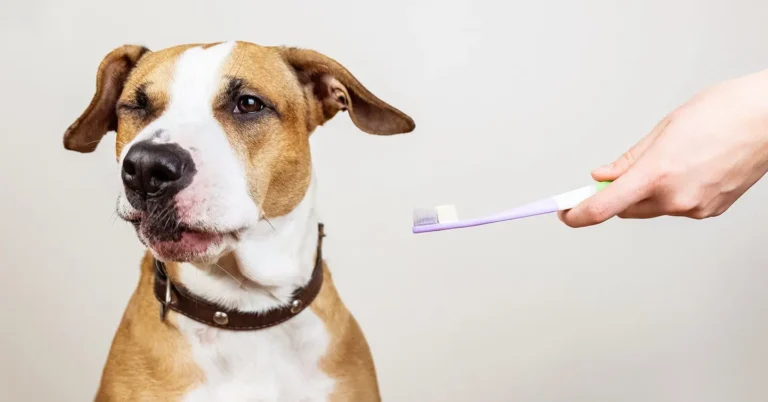Ensuring the health and happiness of your senior small dog is not merely a duty; it’s a reflection of the love and devotion shared between a pet and its owner. However, understanding their unique needs and responding accordingly can be a daunting task. With age, they may not jump as high, or run as fast, but their spirit remains youthful. In this comprehensive guide, we unveil a detailed health checklist that will aid in maintaining your pet’s vitality and joy throughout their golden years.

Navigating the world of senior small dog care requires an understanding of their nutrition, physical activity, and healthcare needs. Whether you’re dealing with changes in their diet, adapting to slower movements, or responding to new health concerns, our guide is designed to ease your journey. The invaluable information within these pages aims to give you the tools necessary to offer your furry companion a quality life full of happiness and good health.
Dive into this treasure trove of information and gain insights into the best care practices, expert vet advice, essential healthcare checks, and useful tips on managing age-related changes. Keep reading to enhance your knowledge and empower yourself to provide the best possible care for your beloved senior small dog. The journey may not always be easy, but with the right knowledge and resources, it can certainly be rewarding!
Monitoring Subtle Behavioral Changes
As small dogs age, they often display behavioral changes that can be early signs of underlying health issues or simply reflect the aging process itself. It is important for pet owners to observe their dogs closely and take note of any subtle shifts in behavior. These changes might include increased sleeping, a decrease in interest in play, changes in appetite, or altered social interactions. Sometimes, senior dogs may appear withdrawn or confused, which could indicate cognitive decline or discomfort due to pain or illness.
Catching these signs early allows for timely intervention and can help your dog live a more comfortable life. For instance, if your dog begins pacing at night or seems to get lost in familiar areas of the house, this could be an early symptom of canine cognitive dysfunction. Veterinary care tailored to managing such conditions, including the use of supplements and environmental enrichment, can significantly slow progression and enhance quality of life.
Joint Health and Mobility Support
Joint and bone issues are common among aging small dogs. Conditions like arthritis and hip dysplasia, while often associated with larger breeds, can also affect smaller dogs, especially those with long spines or previous injuries. Regular movement and proper joint support are essential to maintaining your senior dog’s mobility and independence.
Veterinarians may recommend supplements such as glucosamine and chondroitin to promote joint health and reduce inflammation. Omega-3 fatty acids are also commonly used for their anti-inflammatory properties. For more severe cases, pain management medications or physical therapy may be advised. Some dogs benefit from alternative treatments like acupuncture or laser therapy, which are increasingly offered at progressive veterinary clinics.
In the home environment, adding soft rugs over slippery floors can prevent falls and provide cushioning for sensitive joints. Ramps or stairs can also be installed to help your dog access their favorite spots on furniture or navigate between levels without jumping.
Adapting the Home Environment
Creating a senior-friendly home is crucial for the comfort and safety of your small dog. Aging pets may experience reduced vision or hearing, making it harder for them to respond to cues or navigate familiar spaces. Minimizing obstacles and maintaining a consistent layout in the home can help your dog feel more secure and avoid injury.
Consider placing their food and water bowls in easily accessible locations that do not require them to climb stairs or navigate slippery floors. Elevated feeders may also help reduce strain on the neck and spine. Ensure that your dog’s bed is low to the ground and well-padded, offering both easy access and adequate support for sore joints. Keep lighting soft but sufficient, especially in areas your dog frequents at night, as this helps those with diminished eyesight move around confidently.
Hydration and Kidney Support
Hydration plays a vital role in the health of senior dogs, particularly when it comes to supporting kidney function. Many older dogs develop age-related kidney issues, and even mild dehydration can exacerbate these problems. Encouraging your dog to drink enough water is essential. If your dog is reluctant to drink from a bowl, consider providing water fountains that keep water flowing and fresh, which may be more enticing.
Some pet owners supplement dry kibble with wet food or mix in warm, low-sodium broth to encourage fluid intake. In cases where a dog has been diagnosed with early-stage kidney disease, a prescription diet that supports kidney health may be recommended. These diets typically have restricted protein and phosphorus levels to reduce the burden on the kidneys while still supporting overall nutrition.
Regular bloodwork as part of your senior dog’s veterinary visits can help monitor kidney values and ensure that hydration strategies and dietary changes are having the desired effect.
Sensory Decline and Communication
Many senior small dogs experience a gradual decline in sensory perception, such as hearing and vision loss. While this can be distressing for both pets and their owners, there are ways to adapt and continue communication effectively. For dogs with hearing loss, using visual cues like hand signals or flashlight blinks can be an effective way to issue commands. For dogs with vision issues, maintaining familiar routines and avoiding rearranging furniture helps reduce disorientation.
Providing verbal reassurance and staying close can comfort dogs that may feel vulnerable due to sensory loss. Textured mats, rugs, or scent trails using essential oils (approved safe for dogs) can also help guide them through the home. Toys that squeak or crinkle may continue to offer stimulation for dogs with partial hearing, while toys scented with beef or peanut butter can engage dogs with limited sight.
Skin and Coat Care in Aging Dogs
As your dog ages, changes in their skin and coat condition often become apparent. The fur may become thinner or drier, while the skin may lose elasticity and become more prone to irritation. Senior dogs might also be more sensitive to changes in temperature due to decreased insulation from body fat or coat density.
To keep your dog’s coat healthy, regular grooming is essential. Brushing stimulates circulation and helps distribute natural oils across the coat, preventing matting and dryness. Hypoallergenic or oatmeal-based shampoos can soothe aging skin and avoid unnecessary irritation. If you notice any lumps, bumps, or changes in skin texture, it’s important to bring these to your veterinarian’s attention, as early detection of skin conditions or tumors can be critical to effective treatment.
Nutrition also plays a significant role in maintaining a healthy coat. Essential fatty acids, such as omega-3 and omega-6, can be added to their diet through food or supplements to improve skin hydration and promote a glossy, soft coat.
Managing Weight and Muscle Mass
Weight management becomes increasingly important as your small dog enters their senior years. Excess weight puts additional stress on joints and organs, which can worsen age-related conditions. On the other hand, unintentional weight loss may indicate underlying health problems such as dental issues, kidney disease, or metabolic disorders.
Regular weigh-ins either at home or at the vet’s office help track any significant changes. If your dog is gaining weight, your veterinarian may recommend a low-calorie senior formula that maintains nutrition while helping control body fat. If your dog is losing weight, your vet may explore causes and suggest calorie-dense foods or feeding multiple smaller meals throughout the day.
Preserving lean muscle mass is another goal in senior pet care. Protein-rich diets, combined with low-impact exercise and possibly physical therapy, help keep your dog strong and mobile. Adjusting their nutrition plan according to age and health condition is vital to maintaining optimal body composition.
Consistency and Emotional Support
Lastly, never underestimate the importance of emotional stability and a consistent routine in the life of a senior small dog. Aging pets often thrive when their daily lives are predictable. Regular mealtimes, walks, play sessions, and quiet moments for cuddling help provide a sense of security and reduce stress.
Your senior dog may be more attached to you than ever before. Being present and responsive to their emotional needs helps foster a deeper connection and keeps them emotionally fulfilled. Changes in behavior, such as increased clinginess or occasional confusion, may reflect natural aging or signal deeper health issues. Either way, a calm and loving response can make all the difference.
Nutrition and Diet
As your small dog gets older, their nutritional requirements also change. They may require fewer calories due to a slower metabolism and decreased activity levels. However, they still need a balanced diet rich in proteins, carbohydrates, fats, vitamins, and minerals.
High-Quality Protein
The primary dietary need of a senior dog is high-quality protein. It helps to maintain muscle mass and supports the immune system. Look for dog foods that list a source of animal protein, like chicken or beef, as the first ingredient.
Controlled Fat and Fiber
Senior dogs, particularly small breeds, may have a hard time digesting high-fat diets. Therefore, it’s better to choose a diet with controlled fat levels. Simultaneously, a moderate amount of fiber can aid digestion and prevent constipation.
Exercise and Physical Activity
Even in their senior years, dogs need to stay physically active. Exercise keeps them fit, mentally stimulated, and happy. However, the intensity and duration of exercise should be adjusted according to their health condition and energy levels.
Regular Walks
Regular walks are an excellent way for senior small dogs to stay active. However, the pace and distance should be adjusted according to the dog’s health and energy levels. It’s also essential to keep an eye out for signs of fatigue or discomfort during the walk.
Playtime
Even senior dogs love to play. Playtime keeps them mentally stimulated and happy. Toys that stimulate their sense of smell and brain games that challenge their intelligence are particularly beneficial for senior dogs.
Oral Health Care
Oral health care is often overlooked but is crucial for senior small dogs. Dental diseases not only cause discomfort but can also lead to other serious health issues, including heart and kidney disease.

Regular Brushing
Regular brushing is the best way to maintain your dog’s oral health. It removes plaque and prevents tartar buildup. Aim to brush your dog’s teeth at least a few times a week.
Dental Check-ups
In addition to home care, regular dental check-ups with the vet are essential. The vet can identify and treat dental issues before they turn into serious health problems.
Mental Stimulation and Companionship
Mental stimulation and companionship are critical for your senior small dog’s happiness. They crave your attention and love, so it’s essential to spend quality time with them.
Mental Stimulation
Mental stimulation keeps your dog’s mind sharp. Interactive toys, puzzle games, and training sessions are excellent ways to keep them mentally active.
Companionship
Senior dogs need companionship just like humans do. They enjoy spending time with their family, so include them in your daily activities whenever possible. This can significantly enhance their mood and overall well-being.
To summarize, caring for a senior small dog involves paying attention to their unique needs and providing them with regular health check-ups, a balanced diet, adequate exercise, and plenty of mental stimulation and companionship. Remember, the goal is not just to extend their life but also to enhance the quality of their golden years.
Conclusion
In conclusion, maintaining the health and happiness of your senior small dog is not only a responsibility but a journey of love. Adhering to our comprehensive health checklist can guide you in providing the best care for your older small breed dog. Regular vet check-ups are crucial to ensure early detection and prevention of health issues. Balanced nutrition, consistent exercise, dental care, and mental stimulation can remarkably enhance their quality of life. Don’t forget that your furry friend needs your affection and attention more than ever during their golden years.
Moreover, the relevance of health screenings can’t be overemphasized. They allow for early diagnosis and prompt treatment, increasing their longevity. Also, remember to keep up with their vaccinations and parasite control. It’s all about maintaining a routine that works for your senior dog and sticking to it.
Remember, every moment with your beloved pet is precious. Let’s make them count by ensuring they are happy, healthy, and well cared for. Your senior small dog may be getting older, but their spirits are forever young. Let’s celebrate them and cherish their unconditional love. After all, a healthy dog is a happy dog, and a happy dog makes a happy home.



